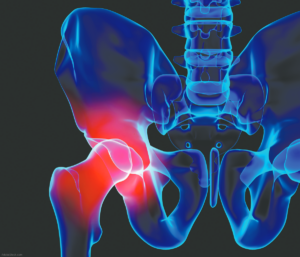 Background & Objectives
Background & Objectives
Osteoarthritis (OA) is among the most common diseases associated with aging and a leading cause of disability worldwide. Alcohol has been associated with both adverse and beneficial health effects generally; however, the relationship between alcohol consumption and hip OA has been minimally studied, and no statistically significant relationship has been observed until now. In this study, without an a priori hypothesis and as part of an examination of dietary factors and hip OA risk in a large cohort of women, Marchand et al. evaluated the relationship between alcohol consumption and hip OA.
Methods
Established in 1976, the Nurses’ Health Study is a prospective cohort study that included 121,700 female nurses between 30–55 years of age who lived in 11 U.S. states. These women provided dietary information every two to four years, starting in 1980. The researchers assessed alcohol consumption among women in the Nurses’ Health Study cohort at four-year intervals, starting in 1980. Intake was computed as cumulative averages and simple updates with latency periods of 0–4 through 20–24 years. Diagnosis of arthritis was first collected in 1988. After excluding women who reported a hip replacement before 1990 (n=481); alcohol consumption exceeding 100 g/day (n=4; a typical drink contains 14 g of alcohol); cigarette smoking exceeding 100 pack years (n=97); and no data on alcohol consumption, primarily due to missing dietary questionnaires (n=18,702) and a couple of other categories, the researchers identified 83,383 women for study inclusion. From these, they identified 1,796 cases of total hip replacement due to hip OA, defined by self-report.
Results
Alcohol consumption was positively associated with the risk of hip OA and dependent on how many drinks per day the women consumed. An increase in risk was seen with an intake of one drink per day and was not confined to any single type of alcoholic beverage. Risks were similar for alcohol consumption up to 20 years before diagnosis, and consumption of alcohol between the ages of 35–40 years was also associated with elevated risk, making it unlikely that symptoms due to hip OA accounted for the observed association. Further, drinking more than two drinks in one day was associated with a greater risk of hip OA, but this association was not independent of total average alcohol intake.
Starting in 1980, participants reported how much beer, wine and liquor they consumed per day, week and month. Participants who reported consuming one to two drinks per week were found to be 1.04 times more likely to develop hip OA than nondrinkers, while those who reported consuming three to six drinks per week were 1.12 times more likely to develop hip OA than nondrinkers. Participants who reported consuming one to one-and-a-half drinks/day were 1.31 times more likely to develop hip OA than nondrinkers, and those who reported consuming more than one-and-a-half drinks per day were 1.34 times more likely to develop hip OA. These ratios were calculated with a confidence interval of 95% (P for trend <0.0001). This association held in latency analyses of up to 16–20 years, and for alcohol consumption between 35–40 years of age. The results were similar for individual types of alcohol intake (i.e., wine, liquor and beer).
All above analyses adjusted for body mass index and physical activity.
Conclusion
The positive association between alcohol consumption and hip OA risk is biologically plausible. Studies in mice showed that alcohol consumption led to matrix proteoglycan loss, inflammation in joint cartilage and cartilage destruction similar to that observed in OA. Studies in rats revealed an association between bone loss and alcohol consumption. The effect of alcohol consumption may be similar in humans, with increasing alcohol consumption leading to increasing cartilage destruction. Supporting the hypothesis that alcohol per se in these beverages may affect joint health, Marchand et al. showed that different types of alcoholic beverages (e.g., wine and liquor) were associated with OA independently.
For complete details, including source material, refer to the full study.
Excerpted and adapted from:
Marchand EN, Hu Y, Song M, et al. Alcohol consumption and risk of total hip replacement due to hip osteoarthritis in women. Arthritis Rheumatol. 2023 Sep;75(9).